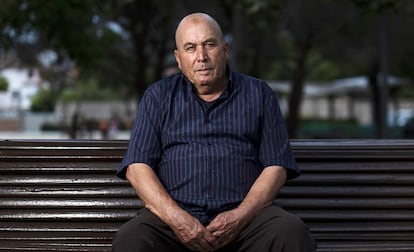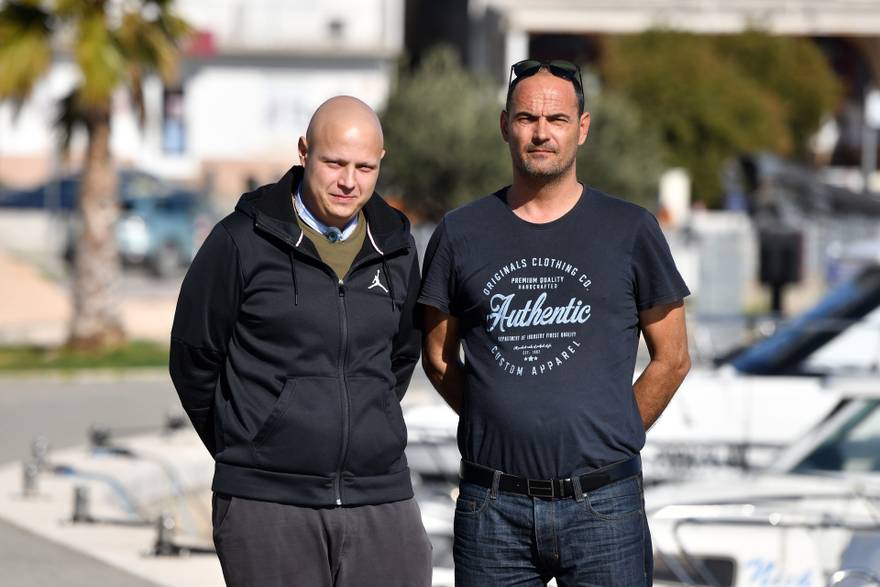Nobody cares an innocent Moor | Opinion

Strictly opinion articles that respond to the author’s own style. These opinion texts have to be based on verified data and be respectful of people even if their actions are criticized. All opinion columns of people outside the wording of El País will carry, after the last line, an author’s foot – known as it is – where the position, title, political militancy (if applicable) or main occupation, or the one that is or was related to the subject addressed is indicated
How are we going to feel as « here » as the one that we know that discrimination can reach the National Court?

Ahmed Tommouhi and Abderrazak Mounib They were convicted of several violations that they did not commit. The second died in jail, and the first has spent 15 years of his life, although his innocence was demonstrated when he had already served six sentence. Now The National Court has denied compensation that he asked for that terrible judicial error. Five magistrates have decided that this man whose life changed forever does not deserve to be restored innocence and that the State compensates for the damage that has caused him. And not just that. They also condemn him to pay the process costs. It costs a lot to understand this decision And more it costs not to attribute it to factors that are not judicial. How can your lordships affirm that it was not a failure not to take into account another test than that of recognition? Can an innocent person be deprived of liberty and that nothing happens? Margarita Robles, who was one of the judges issued by Tommouhi, has not asked for forgiveness for such a rare error. And, of course, that antifminist right that spends the day saying that the complaints for rape are false, it has not come in defense of that Moor, which by Moor would do something.
It is disturbing to realize that the judiciary seems to have a bias by origin. It is difficult not to remember how many times a Moor has been confused with another Moor (it is that you all seem to me, they have come to tell me, as the Chinese) and not relate this unfair treatment to the construction of the Moorish stereotype as wild rapist. The judges do not seem to attend how to harm cases like this the process of integration of the new Spaniards in a country that they already consider their own. How are we going to feel so From here like the one we know most that discrimination can reach the National Court? And why this case, which is a scandal, a flagrant injustice, is not shaking of indignation to public opinion? Would something change if instead of Tommouhi the victim was called García or Fernández? In all the time it was already known that the two men were innocent, why did nobody move a finger for them? The lives of the Moors, they would say, they are not worth the same as the lives of national citizens. Of course, we will come to express our outrage for George Floyd’s death and racism in the United States and that if Donald Trump is the worst. The worst is indifference to continuing abuse to an innocent.
Your subscription is being used on another device
Do you want to add another user to your subscription?
If you continue reading on this device, you cannot read in the other.
Arrow
Your subscription is being used on another device and you can only access El País from one device at the same time.
If you want to share your account, change your subscription to the premium mode, so you can add another user. Each will access with their own email account, which will allow you to customize your experience in the country.
Do you have a company subscription? Access here To hire more accounts.
In the case of not knowing who is using your account, we recommend changing your password here.
If you decide to continue sharing your account, this message will be shown on your device and in the other person who is using your account indefinitely, affecting your reading experience. Can Consult here the terms and conditions of the digital subscription.
About the firm

Writer Catalan-Rifeña, born in Beni Sidel (Morocco) in 1979. Graduate in Arab Philology from the UB, winner of the Ramon Llull Award with ‘The last patriarch’ (2008) and the Nadal Prize with ‘On Monday they will love us’ (2021). Author of the essay ‘have always spoken for us’.








